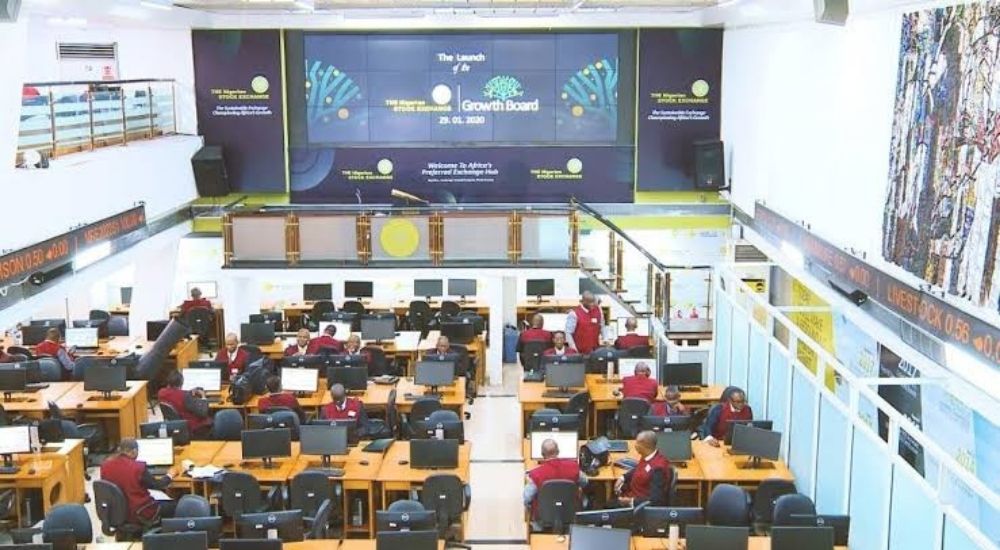Nigeria witnessed a sharp rise in capital outflows from the Nigerian Exchange (NGX) in the first quarter of 2025, as foreign investors withdrew ₦420.37 billion — a staggering 250.86% increase compared to ₦119.81 billion in Q1 2024.
While foreign inflows also surged by 321.63%, reaching ₦392.68 billion from ₦93.37 billion a year earlier, the net outflow of 6.78% reveals persistent investor caution and growing concerns over Nigeria’s economic stability.
Analysts cite a combination of exchange rate instability, high inflation, and inconsistent fiscal and monetary policies as key drivers behind the capital flight. These factors have heightened investor risk perception, pushing many to exit naira-based assets and scale back exposure to the domestic equities market.


According to the NGX’s latest Foreign Portfolio Investment (FPI) report, total transactions dropped by 16.07% from ₦607.05 billion in January to ₦509.47 billion in February 2025 — reflecting rising uncertainty despite an overall year-on-year increase of 42.36%.
Foreign transactions fell more dramatically, plunging by 40.36% from ₦71.51 billion in January to ₦42.65 billion in February. This stark decline highlights a growing reluctance among foreign investors to stay engaged in Nigeria’s volatile market environment.
On the domestic front, local investors continued to dominate, accounting for around 85% of total market activity in 2024 and early 2025. However, domestic transaction volumes also declined by 12.83% between January and February, with retail participation down 19.76% and institutional investments falling by 5.92%.
The deepening outflows signal more than routine market fluctuations — they point to a broader crisis of investor confidence in Nigeria’s economic trajectory. Unpredictable policies, fluctuating exchange rates, and delays in implementing reforms such as fuel subsidy removal have further strained sentiment.
“While rising foreign inflows appear promising on the surface, the faster-growing outflows tell a deeper story of instability,” said Lagos-based economist Dele Abiodun. “Capital is flowing toward markets that offer stability and predictability — two things investors are not currently finding in Nigeria.”
By the end of Q1 2025, domestic investors had driven approximately ₦1.002 trillion in market activity, while foreign investor contributions lagged significantly at just ₦114.16 billion — underscoring a sustained decline in foreign engagement.


Experts warn that without urgent structural reforms to address the root causes of capital flight, Nigeria may face prolonged disengagement from global investors. Key recommendations include stabilizing the exchange rate, tackling inflation, and restoring the credibility of monetary and fiscal policy.
“Long-term capital is about more than returns — it’s about confidence,” Abiodun added. “Nigeria must deliver clear, consistent signals that it’s committed to economic stability and investor protection.”

Rebuilding trust in the market will require coordinated, transparent policy execution and a renewed focus on creating an investment-friendly environment. Without it, the country risks losing the foreign capital needed to support liquidity, job creation, and long-term growth.




